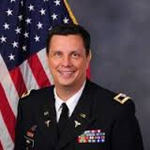In honor of World Malaria Day, ASTMH asked some of our malaria expert members and colleagues what inspired them to specialize in malaria, what stands out in the fight against malaria and what will be the economic benefit of a malaria-free world. Other interviews in this series include: Past President Christopher V. Plowe, MD, MPH, FASTMH; Rear Adm. Timothy Ziemer of the President's Malaria Initiative; Philip Rosenthal, MD, FASTMH, Editor-in-Chief of American Journal of Tropical Medicine and Hygiene; Councilors Nicole Achee, PhD, ASTMH, Laurence Slutsker, MD, MPH, FASTMH, David A. Fidock, PhD, Rick Fairhurst, MD, PhD, FASTMH; Stephanie Yanow, PhD, Assistant Scientific Program Chair; and Capt. Judith E. Epstein, MD, of the Naval Medical Research Center.
 What situation or person inspired you to specialize in malaria?
What situation or person inspired you to specialize in malaria?
I was truly inspired by Prof. Stuart Krassner, who first introduced me to parasitology as an undergraduate. I was immediately hooked on tropical infectious diseases. We used Markell and Voge's textbook and I took notice of the many figures and pictures from Armed Forces Institute of Parisitology and Department of Defense overseas labs, which led me to a career in the Army, and, with respect to malaria research, the Walter Reed Army Institute of Research. Like many others that chose this career path, I met the late Col. Alan J. Magill, MD, FASTMH – ASTMH President in 2014 and Director of Malaria Programs at the Bill & Melinda Gates Foundation – among many notable malariologists along the way.
Saving lives is what drives you, but what do you see as the economic benefit to eradicating malaria?
Eradicating malaria not only saves lives, it gives children and adults the opportunity to grow, learn and lead productive lives. In simple economic terms, this can only lead to increases in per capita GDP for the countries endemic with malaria.
In thinking about malaria control and elimination efforts in the last five years, what stands out most for you?
I am not just impressed with the tremendous progress that has been made in morbidity and mortality achieved with the use of bed nets and artemisinin combination therapy, but also the people who have achieved this success. Progress like this takes a tremendous amount of human capital and political will, which gives me hope that this momentum can be not only sustained, but increased.